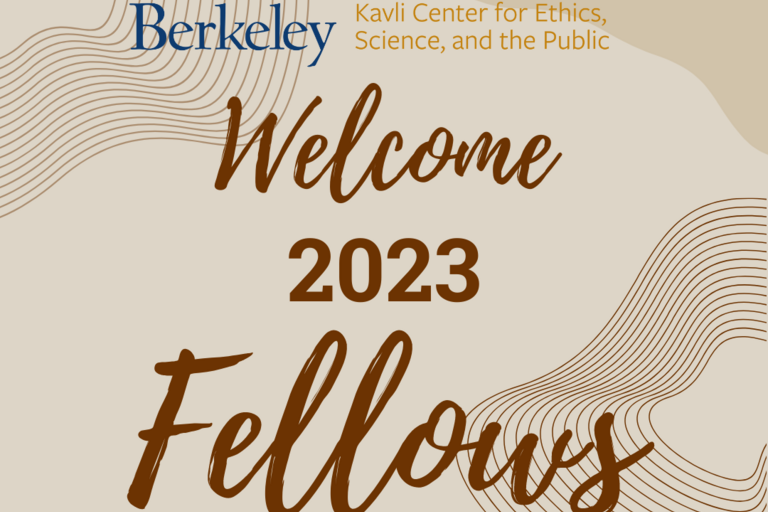About the Fellows Program
Discoveries in science and technology are moving quickly from basic research to real-world applications, sometimes with societal-scale impact, and scientists are increasingly encountering challenges that fall outside their expertise. We need a new kind of training that prepares scientists to confront the current and future ethical challenges of their fields, and that creates social scientists, philosophers, journalists, and policymakers who are able to work with scientists and diverse communities to ensure that the applications of scientific discoveries protect and advance fundamental human interests. The Kavli Center for Ethics, Science, and the Public aims to build a transdisciplinary community of research and learning that breaks down barriers between disciplines and across academia and society, to work together to envision the futures we want our scientific advances to create.
The fellowship program is aimed at graduate students and postdoctoral scholars in the sciences, humanities, social sciences, and professional schools who are interested in exploring ethical challenges, advancing solutions, and identifying ways of involving impacted communities and the public in science and technology. Fellowships are awarded for up to two years with funding available to work and study in the center and be a part of a new kind of community.



